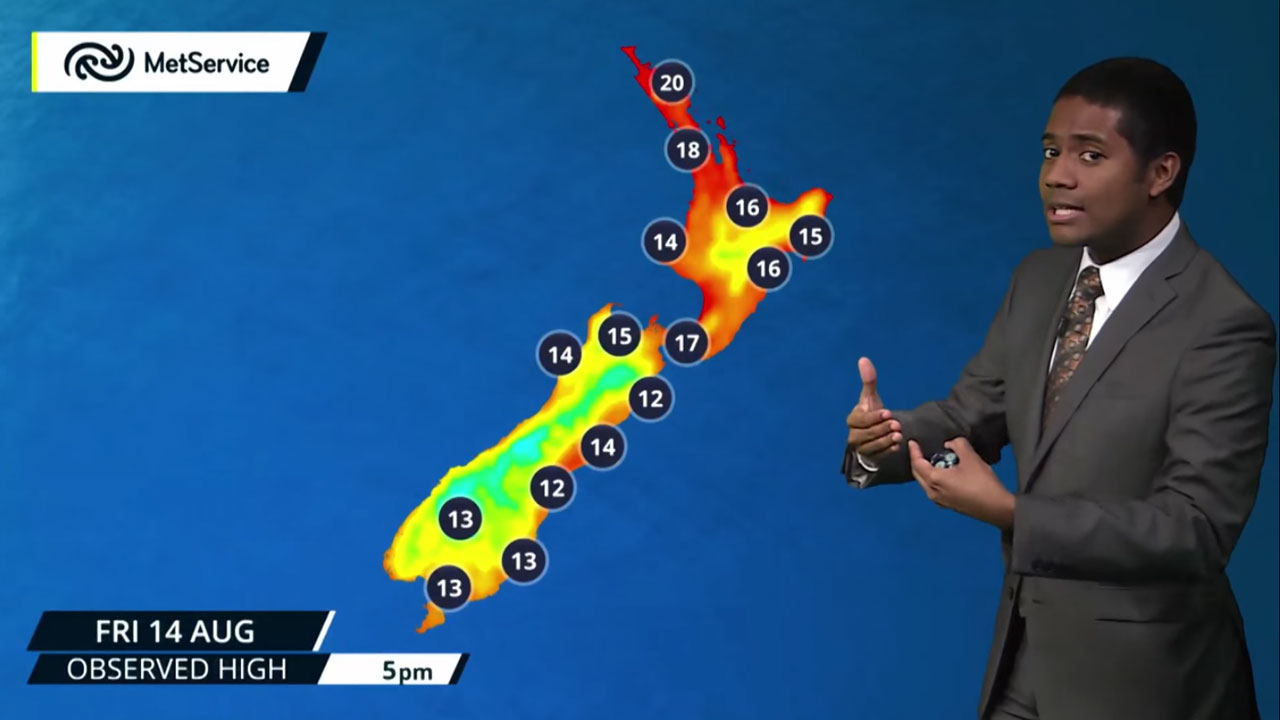Weather Report 2050 – MetService New Zealand
Weather Report 2050 – MetService New Zealand, 14 Aug. 2050 […]
Weather Report 2050 – MetService New Zealand, 14 Aug. 2050
The New Zealand Herald: A mock weather report looking 35 years into the future has painted a stark picture of a wintry New Zealand, ravaged by extreme conditions including both drought and flooding.
Just days before world leaders meet in Paris to discuss a global climate change deal, a futuristic fake MetService forecast for August 14, 2050 has appeared on social media.
TV meteorologist Chester Lampkin shows that winter temperatures that day ranging from 12C to 20C — up to 3C warmer than normal for a winter’s day.
It shows showers and thunderstorms across Northland, Auckland, and Hamilton, with 70-90mm daily rainfall causing flooding and closures to an “underwater” Northern Motorway, North-Western Motorway, and Tamaki Drive.
Coastal flood warnings are in effect for Auckland’s coastline. Most of Canterbury, meanwhile, is parched and under a fire risk.
The simulated footage showed the Hurunui District in North Canterbury to be at high fire risk. At tourist hot-spot of Hanmer Springs “300-500 firefighters” are fighting a massive wildfire.
“Just a year ago, we were talking about extreme rains for this part of New Zealand, and now we’re talking about drought and fire. We keep going back and forth in the extremes of the weather,” said the meteorologist in the 4.55 minute clip posted on the World Meteorological Organisation (WMO) YouTube channel.
The video ends with a message from UN Secretary-General Ban Ki-Moon and WMO Secretary-General Michel Jarraud who say climate change will “increasingly affect our day-to-day weather”.
“But we don’t have to wait until 2050 to witness its impact,” he says.
“Already today, many parts of the world are experiencing more intense rainfall, floods, storms, heatwaves, droughts … we have to minimise these negative impacts and the best way to do that is to rapidly and significantly reduce our emissions of carbon dioxide and other greenhouse gases.”
Christiana Figueres, Executive Secretary of the United Nations Framework Convention on Climate Change, urged for action on “at least two levels”.
“We need a new robust global climate change agreement and we need local policy that points us to a green growth and action by investors, industry, cities and regions. Then we can arrive at a stable climate neutral future.”
New Zealand presently has a current unconditional emissions target of 5 per cent below 1990 levels by 2020, and 50 per cent below 1990 levels by 2050.
